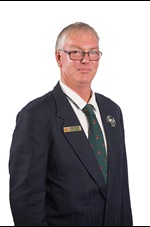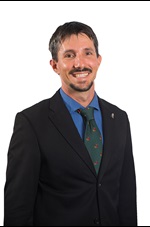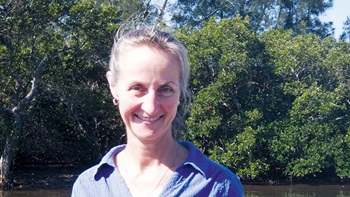Fisheries and aquaculture-focused Nuffield scholars



Three fisheries and aquaculture-related Nuffield Scholarships were announced at Nuffield Australia’s annual conference in September, with two scholarships sponsored by the FRDC and one by Woolworths.
The scholarships allow those involved in primary production to travel internationally for up to 12 weeks to investigate issues of personal and fisheries and aquaculture sector importance.
Dennis Holder, from Port Adelaide, South Australia, plans to research new marine technologies in electric propulsion and drive systems, energy storage and power generation for hybrid operations for commercial fishing vessels.
He plans to travel to Canada, Japan, Norway, the Netherlands, Singapore and the US to look at the latest and most successful innovations being used in commercial fishing vessels. He will assess potential applications in Australia and undertake cost–benefit analyses for local fishers.
Steven Davies is senior manager of Marine Produce Australia and is responsible for the company’s Kimberley-based fish-farming operation, Cone Bay Ocean Barramundi. Based in Perth, he will investigate ways to improve efforts to develop socially responsible and economically sustainable wild-catch seafood and aquaculture industries in Australia.
He hopes to visit Chile, China, Iceland, Kiribati, Norway and the US to identify potential new practices and insights that can be applied to the Australian wild-catch seafood and aquaculture industries.
Dan Richards, from Darwin, will study international seafood and aquaculture production technologies and market trends. As general manager of the Northern Territory-based Humpty Doo Barramundi aquaculture operation, he believes there are big opportunities to develop premium-quality, sustainably produced white fish to complement pink fish markets in Australia and overseas.
He plans to visit Belgium, Denmark, Japan, Norway, Saudi Arabia and the US.
Photos (from top): Dennis Holder, Steven Davies, Dan Richards
More information
More prawn fisheries MSC certified
Western Australia’s Exmouth Gulf and Shark Bay prawn fisheries received Marine Stewardship Council (MSC) certification in October, joining an elite group of fisheries recognised worldwide for their commitment to environmental sustainability.
These fisheries provide a combined total of $30 million worth of King Prawns and Tiger Prawns to state, national and international markets each year.
Western Australian Fishing Industry Council (WAFIC) chief executive John Harrison said the two prawn fisheries were the first WA fisheries to obtain full MSC certification under the $14.5 million MSC initiative developed by the WA Government in partnership with WAFIC.
There are seven operators in the Shark Bay Prawn Fishery, selling under the Shark Bay Wild brand. Boats from the MG Kailis Group operate in the Exmouth Gulf Prawn Fishery, marketing their catch under the Exmouth Wild brand.
More information
Workshop discusses national disease response
 Jane Frances
Jane Frances Photo: NSW DPI
The fisheries sector is soon to join the livestock and plant industries with a formal agreement for disease prevention, containment and emergency response funding being developed.
A stakeholder workshop in March 2016 will discuss the potential inclusions in industry–government emergency response arrangements for Australia’s aquatic animal industries – both wild capture and aquaculture.
The workshop follows more than a year of consultation and a six-month consultancy to analyse possible public–private cost-share arrangements to pay for the emergency responses in the event of a disease outbreak. This could include compensation for stock losses, which is already a provision in similar agreements for Australia’s livestock and plant industries.
Working with Animal Health Australia, Jane Frances is managing the four-year emergency response project, funded by the Australian Department of Agriculture and Water Resources.
A workshop in 2012 supported by the FRDC was the precursor to the current project, which began in October 2014. The aim is to develop formal industry–government response arrangements for aquatic animal diseases so the roles and responsibilities of different government and industry organisations in the event of an outbreak are clearly outlined.
More information
Jane Frances, Animal Health Australia, jane.frances@dpi.nsw.gov.au





